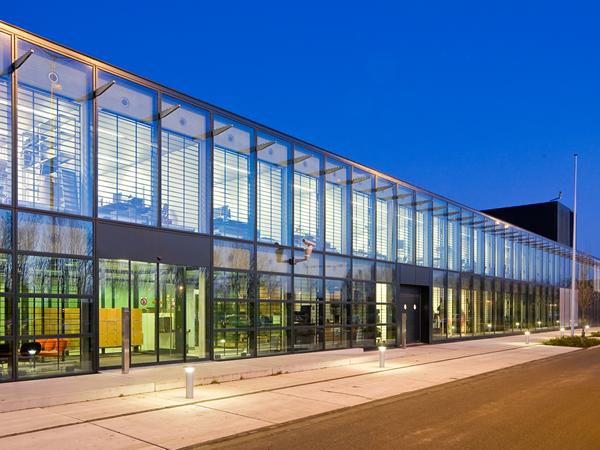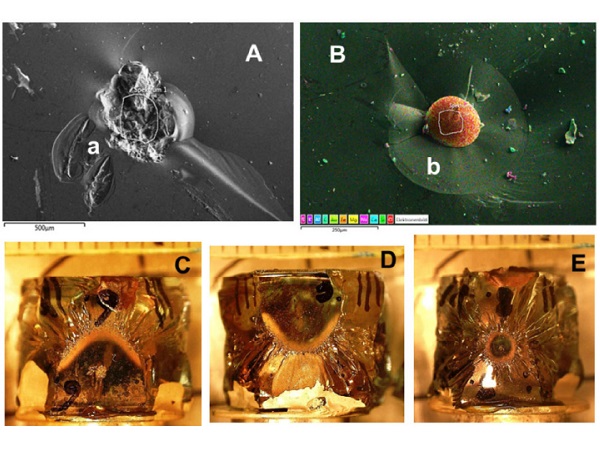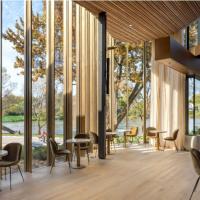But, are today's hospitals, the supposed 'healing spaces' built with the kind of ambience that truly fosters healing? Yes, no doubt, they are technologically advanced, and equipped with the most state-of-the-art facilities.
They have the finest human capital, expertise and experience. But then again, is the healing space, by itself, a place that heals?
Within the confines of a healing space, what are the elements that have a bearing on one's recuperation? It is, when all of the below-mentioned factors play out in tandem, that a healing space can be so called.
To ensure that these constituents are in place in the built environment, the right building materials need to be used. Take glass, for instance.
1. A Safe Healing environment

Safety & security are paramount to a hospital where several precautions are taken to check the incidence of untoward incidents.
Today, with fire-resistant glass and impact safety glass, hospitals can rest assured that they are indeed providing a safe healing environment to their patients
2. Hygiene

Ensuring the highest standards of hygiene in the healing space goes a long way in mitigating hospital-acquired infections. On that front, glass is helpful in minimizing the possibility of incidence of hospital-acquired infections
3. Thermal comfort
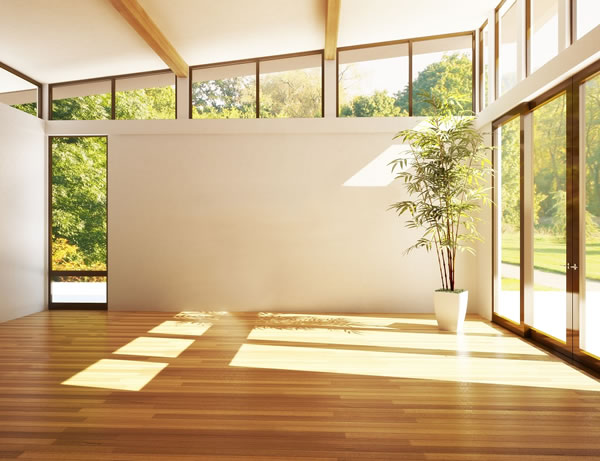
Glass has the ability to provide optimum thermal comfort. It can cut off excessive direct heat, even while allowing in natural daylight. The right variant can cut glare, so occupants get their share of sunlight but without the accompanying glare.
4. Noise-free acoustic comfort

Glass can act as a shield against external sounds, hence noise from the outside does not become a source of disturbance.
By choosing the right combination of glasses, one can ensure that the patients enjoy sound sleep and a comfortable environment to recuperate.
5. Visual Delight
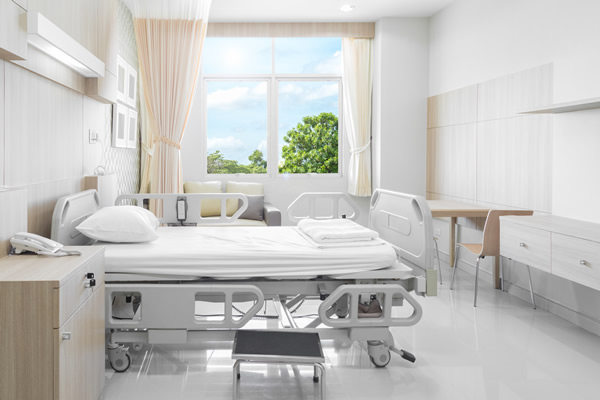
Natural light has been found to be connected to faster recovery, improved emotional wellness and decreased dependence on medication, according to studies about the benefits of nature on healthcare environments.
Because of its transparent nature, glass offers visual delight and unhindered views of the outside that can have a soothing and calming effect on one's senses, again aiding the process of recovery.
6. Indoor Air Quality

In the indoor spaces, the level of Volatile Organic Compounds (VOC) is influenced by the materials used in the interiors. These volatile compounds, when above a certain limit, are harmful to human health.
The accessories used to fix the glass are devoid of lead, copper, arsenic and formaldehyde, and have negligible amount of VOC.
7. Energy efficiency

When the healing space is energy-efficient, it is bound to have a positive impact on one's health and wellbeing. The usage of the right glass can significantly reduce the operating cost of a hospital, in terms of HVAC and lighting expenditure.
In effect, there is a lot more to a hospital than the sum total of its infrastructure and the quality of healthcare professionals.
In fact, if a hospital needs to make the shift from being a 'healing space' to 'a place of hope and promise', the constituents of indoor comfort need to be deeply reflected upon. And glass, might just show the way to go about it.
To know more on how a healing space can be designed to offer comfort, do check out the Healing Spaces Design Guide by Saint-Gobain.
If you require any assistance in choosing the right glass to transform your healing space, please contact healingspaces@saint-gobain.com

